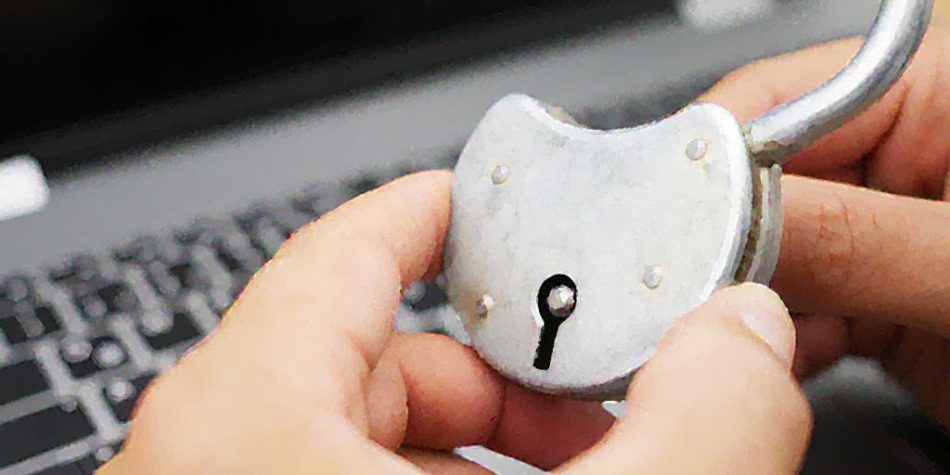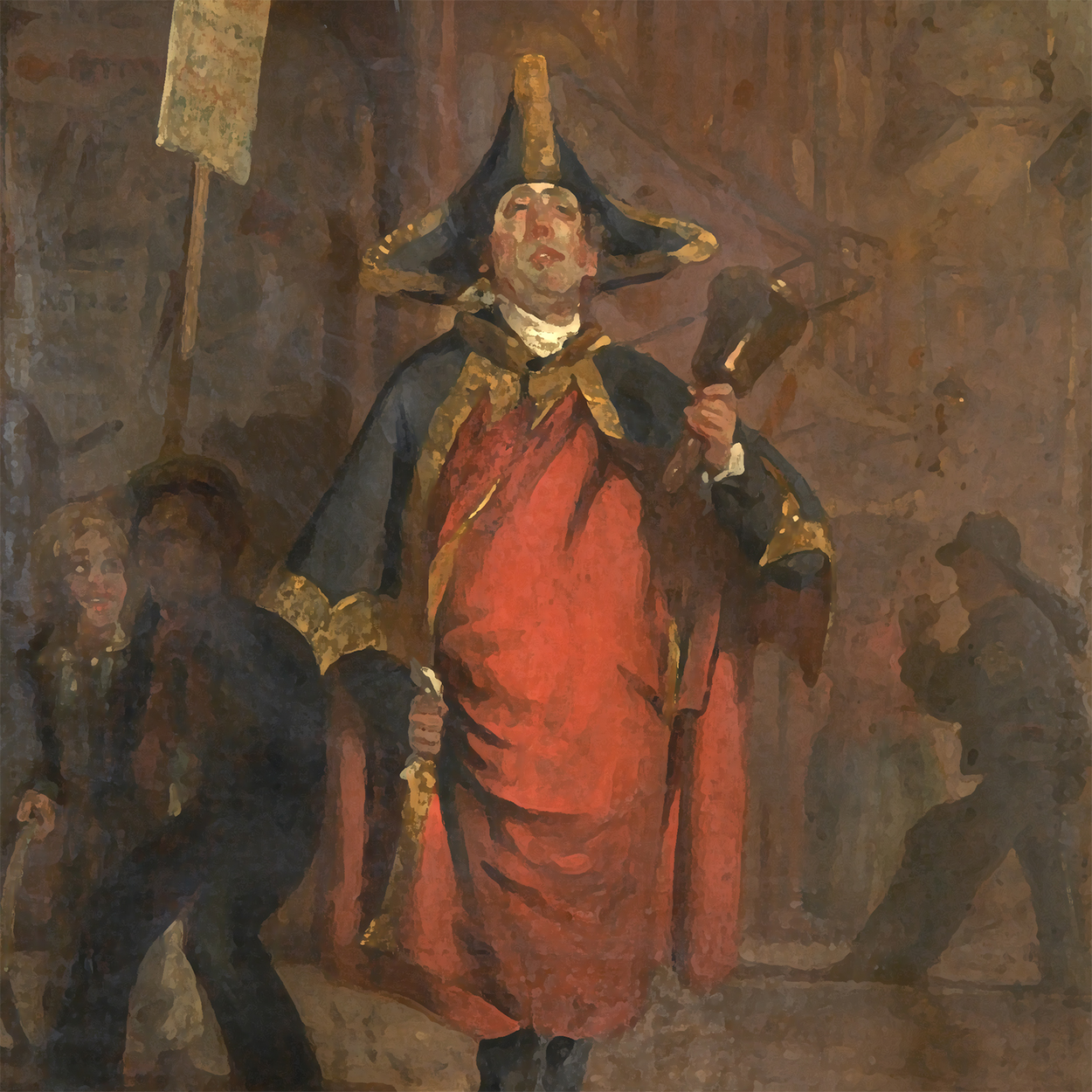In 2018, the world was shocked by the revelation that two years prior, the personal data of millions of Facebook users had been harvested without their consent by Cambridge Analytica, a political consulting firm. The data was used to create targeted ads and influence the outcome of the US presidential election.
Harper’s columnist Rebecca Solnit wrote, “Our privacy is being strip-mined and hoarded. … [The young] are disappearing down the rabbit hole of total immersion in the networked world and struggling to get out of it.”
This scandal was a wake-up call for many, revealing just how vulnerable our personal information has become in the age of big data and targeted advertising. This, alongside ongoing data breaches, has made clear that we’re living in a world where privacy is increasingly under attack. Even so, it’s all too easy to trade our privacy for a little more convenience or transparency.
But this trade-off has a moral component. Frank Karlitschek, a German software developer turned activist, has coined the motto “privacy is the foundation of democracy.” As the Cambridge Analytica scandal demonstrated, when our privacy is violated, analytical tools that can work millions of times faster than the human mind can develop approaches to prey on our weaknesses and manipulate our thinking, weakening our ability to act as independent moral agents.
Christ’s ministry required that information be given to the right people at the right time
For all these reasons, we can appreciate that privacy is inherently valuable, and protecting privacy can, in meaningful ways, intersect with our expressions of faith.
Privacy as a sacred priority
When Jesus went about healing, He often instructed those He healed not to tell anyone about it. In the Gospel of Mark, for example, Jesus heals a man with leprosy and commands him, “See that you say nothing to anyone.”
It is worth noting that Jesus did not always reveal His plans or intentions to His followers. In the Gospel of John, for example, Jesus tells His disciples that He is going away to prepare a place for them and will return to take them with Him. However, when one of his disciples, Thomas, asks where Jesus is going, Jesus simply responds, “You know the way to where I am going.” When pressed, He simply explained that “I am the way.” Rather than letting them in on a detailed strategic plan, Christ asked His followers to simply trust Him.
Perhaps the most notable example of Christ’s appreciation of privacy occurred when Jairus came to Jesus, begging Him to heal his daughter. Jairus asked that they go to his house immediately. But on the way, messengers arrived to tell Jairus that his daughter had died, and there was no longer any need for Jesus to come. However, Jesus told Jairus, “Do not fear, only believe.” When they arrived at Jairus’ house, Jesus allowed only Peter, James, and John to enter with Him, along with the girl’s parents. He then took the girl by the hand and said to her, “Arise!” The girl arose, and Jesus instructed her parents not to tell anyone what had happened.
Many scholars have since suggested that Jesus wanted to avoid transparency about raising Jairus’ daughter from the dead because He wanted to avoid drawing attention to Himself to prevent a premature persecution of his ministry. Christ’s ministry required that information be given to the right people at the right time.
Christ is far from the only scriptural figure to demonstrate the importance of privacy. Esther is able to save her people because of her decision to hide her nationality, while Samson ruins his ability to fulfill his mission by revealing the secret of his strength.
The purposes of privacy
These stories teach several important purposes for privacy. It allows us to have intimate encounters with God without the distractions and intrusions of the outside world. Second, privacy allows us to be vulnerable with God and with each other. Jairus was desperate for Jesus to heal his daughter, and he was willing to go to great lengths to make it happen. He trusted Jesus with his daughter’s life. This kind of trust and vulnerability requires a certain degree of privacy so that we can be free to express ourselves without fear of judgment or ridicule.
Shoshana Zuboff, a professor at Harvard Business School and the author of “The Age of Surveillance Capitalism,” has written extensively about the dangers of the new digital economy and the ways in which our personal data is being exploited for profit. She argues that privacy is essential for protecting our autonomy and our ability to make choices that are not predetermined by algorithms and artificial intelligence.
Despite the many voices speaking out in favor of privacy, there are still those who argue that it is an outdated and unnecessary concept. They argue that in a world where everything is connected and everything is shared, privacy is no longer possible or desirable. However, we must resist this line of thinking and instead recognize that privacy is essential for maintaining our dignity and our autonomy as individuals. Zuboff’s arguments seem to suggest that a society that preserves a sphere for spirituality and conscience requires a society that preserves privacy.
Organizational privacy
This goes doubly for the institutions we empower to act on our behalf. We could not trust a bank that would not be able to maintain the privacy of our information and deposits. We would expect the companies we invest in to maintain There is a distinction between transparency and honesty.
Without strong privacy protections in place, these organizations may be at risk of data breaches, hacking, and other forms of cyber attacks that could compromise their operations and reputations.
Yet in the same moment many are demanding privacy protections on an individual level, some insist that larger organizations operate from a place of radical transparency, despite the harms that it could do to the individuals they serve. Out of our distrust and suspicion with any large organization, we can sometimes dismiss any such privacy as likely instruments of deception or manipulation—failing to recognize how organizations of different kinds can have many good reasons for privacy as well.
Transparency vs. honesty
Many suggest that increased transparency equates to increased honesty. If this were true, it would certainly make the moral calculus easier. But the reality is, of course, much more complicated. Anthropologist Gabriella Colman writes, “The effectiveness of demanding transparency and truth has often been overstated, and its advocates sometimes naively attribute an almost magical faith to such a tactic while deeming the anonymous means to those same ends of truth-telling immoral.”
There is a distinction between transparency and honesty. While they are often used interchangeably, privacy and honesty can (and in some cases must) co-exist. While Jesus did not always prioritize transparency, he clearly valued honesty—often teaching his followers to be truthful and avoid deception. Similarly, when confronted by religious authorities, Jesus does not shy away from telling them the truth, even when it puts His own safety at risk.
There may be times when it is appropriate or even necessary to keep certain information private, particularly if it could harm others or undermine important goals. In fact, scripture suggests that it’s discretion about when to conceal and when to reveal that distinguishes someone as trustworthy. “Whoever goes about slandering reveals secrets, but he who is trustworthy in spirit keeps a thing covered.”
In conclusion, the importance of privacy cannot be overstated. The Cambridge Analytica scandal and the work of experts such as Shoshana Zuboff highlight just how vulnerable our personal information has become in the age of big data and targeted advertising. Yet, the importance of privacy goes beyond protecting our personal information; it is essential for maintaining our dignity and autonomy as individuals and for creating spaces for spirituality, conscience, and vulnerability. While transparency is important, honesty and privacy can and must coexist. We should resist the notion that privacy is outdated. By doing so, we can help preserve our autonomy and our ability to make choices that are not predetermined by algorithms and artificial intelligence.















